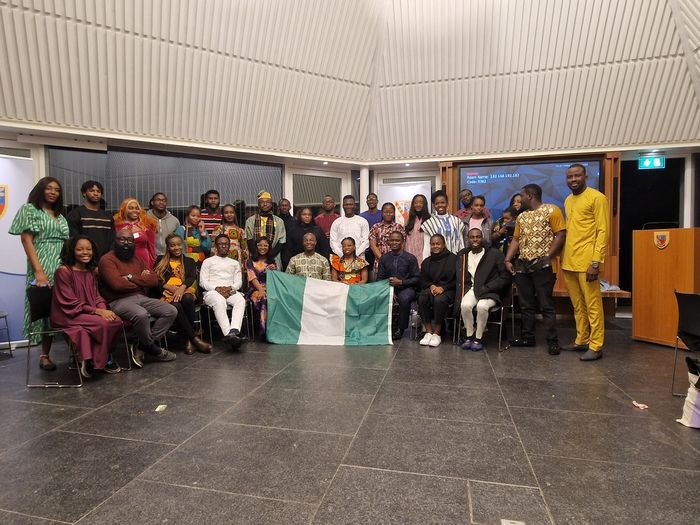Afghan Student Fundraisers: ‘I feel a need, an obligation, to try to raise awareness of what’s happening in Afghanistan’
Speaking to the student organisers of Afghan Charity Week, Lois Kildea finds out about what they have planned and why they want to fundraise

“There really aren’t that many Afghans at Cambridge … so the fact that we can have a community within the society is really nice” says Farhia, a member of the Cambridge Afghan Society. Earlier this week, I spoke to Farhia and her fellow society member, Angelica, who are the Cambridge representatives for Afghan Charity Week (ACW) 2023. I was keen to learn more about what the Afghan society does, what it means to Afghan students, their plans for the week, and the experience of studying in Cambridge while the Taliban have resurrected their former regime.
“A space for Afghan students to come together”
The society runs informal events, like games nights, and often collaborates with other cultural societies. They want to create “a space for Afghan students but also people who want to learn about Afghanistan to come together.” Society events enable both those who are a part of the Afghan diaspora and those who are not to join together “to have a good time” and “to share some sort of awareness around what’s going on with the political and humanitarian situation in Afghanistan.”
ACW was first established in 2019 and runs annually as a collaborative effort “between several universities across the UK and also some individual fundraisers … to raise as much money as possible for a specific charity.” This year, all money fundraised is going to the Daanish Foundation, an international humanitarian and development organisation that has worked with the Afghan community in the UK as well as with communities in Afghanistan itself. The organisation helps to educate children, empower women, and provide communities with access to clean drinking water and sanitation facilities.
“There’s not really a term that I can use to describe my identity”
Universities participating in ACW choose to host events for one week during a three-week window. In the run-up to the seven-day-long fundraising effort, an event was held last weekend featuring Gulwali Passarlay, author of the personal memoir, The Lightless Sky. To raise money for the Daanish Foundation as well as awareness of Afghan culture and cuisine, a bake-sale involving Afghan desserts like kulcha (which, Farhia explains to me, “is kind of like a biscuit, you can get sweet ones, you can get savoury ones”) was held by Downing Site on Wednesday 22nd and Thursday 23rd of February. The week will conclude on Saturday 26th with a Cultural Exchange Night, held in collaboration with the Somali Society, the Pakistan Society, and the Middle Eastern, North African (MENA) society. “We’re trying to get everybody to contribute their own cultural good, and to come up in their traditional dress so people can ‘get a feel for’ one another’s traditions and cultures.”
When I ask Farhia and Angelica what motivates their fundraising, they begin to describe what it feels like being geographically distant from a situation to which they are emotionally close. Angelica tells me that, as one of the first generation of her family to move to the UK, she is conscious of being in “a place of big privilege” and she feels “a need, an obligation, to try to raise awareness of what’s happening in Afghanistan.” She says that she fears Afghanistan is moving “out of the public sphere” as time elapses and our news feeds fill up with stories of other crises. ACW is, she stresses, “really important” because it serves to remind the Cambridge community and wider UK society that the political and humanitarian situation in Afghanistan is still ongoing. Angelica says that Afghan MP Fawzia Koofi’s speech at the Union earlier this month was important for the same reason — it helps us to remember how the Taliban regime is affecting ordinary people, especially girls, throughout Afghanistan.
Farhia affirms her co-rep’s comments, adding that the need to raise awareness about Afghanistan is intensified by the fact that the number of Afghan students at Cambridge is low, as is the number of people able to meaningfully connect with the country. “I think it’s in a really weird location, both geographically and culturally, where we kind of overlap with so many different cultures, but we don’t really fit into any certain region. I wouldn’t sort of classify myself as South Asian, but I also wouldn’t classify myself as Middle Eastern … There’s not really a term that I can use to describe my identity.” Farhia’s tone is affectionate as she describes the uniqueness of her culture and expresses her hope that ACW will raise awareness of the political situation in her country as well as help people to better understand “where we come from, and the beauty of Afghanistan.”
To find out more about what’s on during Cambridge ACW check out @cambridgeafghansoc on Instagram or https://afghancharityweek.co.uk/donations/uniofcambridge/ .
 News / Cambridge students set up encampment calling for Israel divestment6 May 2024
News / Cambridge students set up encampment calling for Israel divestment6 May 2024 News / Cambridge postgrad re-elected as City councillor4 May 2024
News / Cambridge postgrad re-elected as City councillor4 May 2024 News / Proposed changes to Cambridge exam resits remain stricter than most7 May 2024
News / Proposed changes to Cambridge exam resits remain stricter than most7 May 2024 News / Some supervisors’ effective pay rate £3 below living wage, new report finds5 May 2024
News / Some supervisors’ effective pay rate £3 below living wage, new report finds5 May 2024 Fashion / Class and closeted identities: how do fits fit into our cultures?6 May 2024
Fashion / Class and closeted identities: how do fits fit into our cultures?6 May 2024






